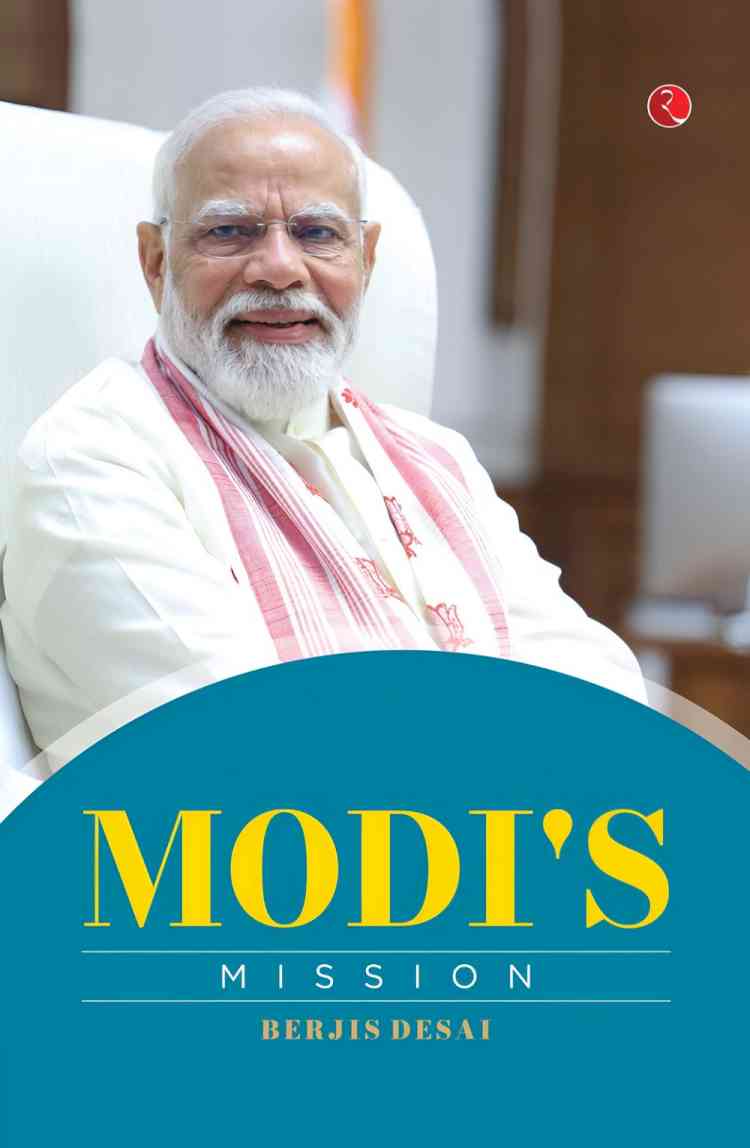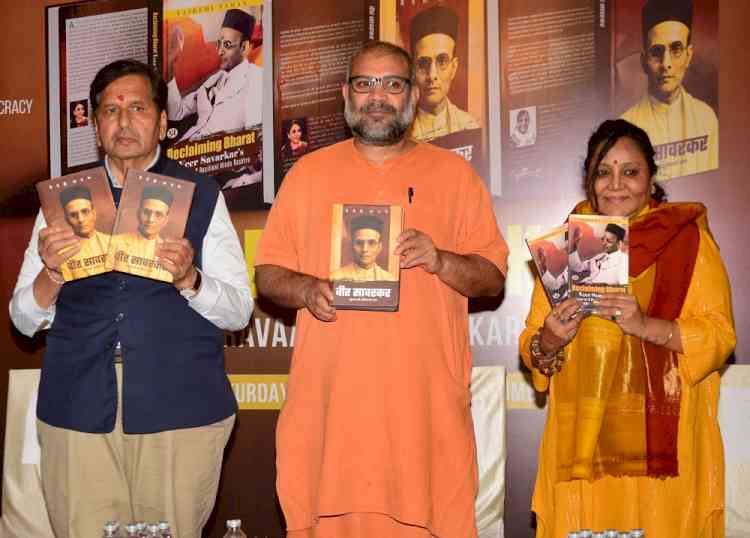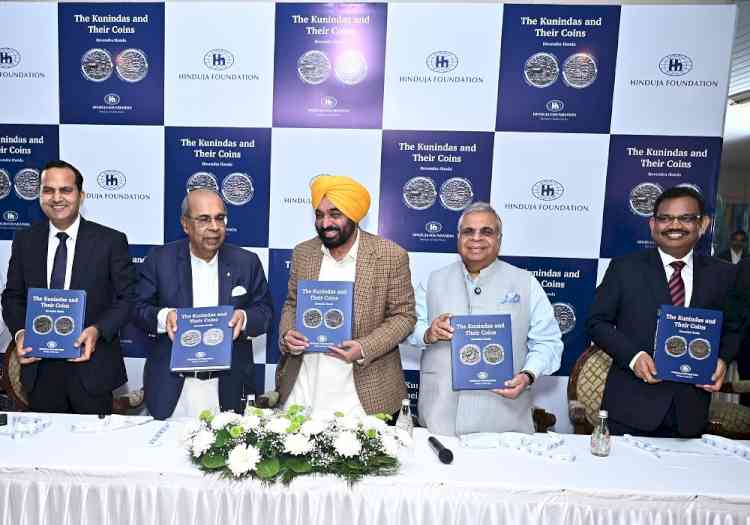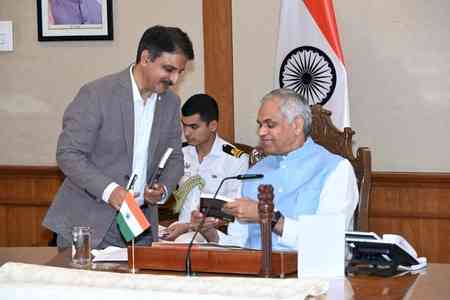Selected Excerpts: Modi’s Mission

Excerpt 1:
A dispassionate look at the 75 years of Narendra Modi reveals how every major incident and event in his life was structured in a manner to ensure the ultimate result. Many of us are children of destiny but some like Modi and Gandhi are instruments of the forces which shape India’s emergence as a Nation.
Narendra Modi has unstinted admiration for the Mahatma’s ability to instantly raise the consciousness of the masses. Modi recalls how by-the simple act of picking up a pinch of salt, Gandhiji sparked a nationwide movement of civil disobedience and resistance. In a speech given at Nagpur University, Modi had called Gandhi a great Communicator, which surprised a section of the audience who thought that the Mahatma was not such a great speaker. Modi went on to explain that Gandhi was not an orator, but he knew how to instantly connect with the consciousness of the masses, and that’s why he was a great communicator. Modi, of course, is both an orator and a great communicator. During the COVID-19 crisis, the manner in which Modi convinced the entire nation including the Northeast to accept a Janata curfew preceding the lockdown, is evidence of this ability.
Excerpt 2:
Far away from the playing fields of Eton and Harrow and the hallowed portals of Oxbridge, primary school for Narendra was a eight room structure with blackboards written upon with squeaking chalk. The high school, which followed, was hardly different.
Rewind to sixty years before Narendra was born, just before the beginning of the 20th century, in stark contrast to Modi’s childhood, Jawaharlal Nehru, India’s first prime minister, was attended to, by English governesses and Irish tutors along with a retinue of liveried servants in a palatial 42-room home called Anand Bhawan of his barrister father, before studying at Harrow, where British aristocracy schooled their children, and Trinity College, Cambridge. Nehru writes in his autobiography that he had a garden, a tennis court and a swimming pool and a pet pony to ride. His childhood, he wrote, was sheltered and uneventful. His daughter, Indira, studied in posh schools in India and Switzerland, was fluent in French, and did a stint at Oxford.
Jawaharlal, the child, was aghast to watch his father sip imported red claret, which he thought was blood, as he puts it in his autobiography. Narendra, the child, watched his mother cleaning utensils of others with glass-mixed ash which often made her fingers bleed.
This comparison is relevant only to understand Modi’s upbringing and early experiences which significantly impacted his mindset. His natural attunement with the poor and deeply ingrained grassroots socioeconomic philosophy, which is so different from his political opponents, is a result of this mindset.
Excerpt 3:
A section of the intellectual elite in India has just not been able to decode Narendra Modi. Even after he became Chief Minister of Gujarat for a fourth time, they believed that his political fortunes were limited to being a strong regional leader. In early 2013, despite the rapid emergence of Modi as a national leader, they were confident that he would not be named as the prime ministerial candidate of the BJP. It was only when the momentum generated by him during the 2014 campaign looked unstoppable that the elite became distinctly nervous. Some declared that they would migrate if Narendra Modi became the prime minister. None did.
The 2014 victory of the NDA (BJP) was regarded by them as an aberration, a one-time mandate due to anger against the non-performance of the UPA during its second term. The elite were skeptical that the NDA was unlikely to win again. Hence, in 2019, they were rejuvenated by their belief that the BJP would lose. Instead, the BJP secured a record majority and required no coalition. In 2024, due to a setback to the BJP on the results day, their hopes were enlivened momentarily, only to subside.
What the elite fails to appreciate is that Modi has triggered a structural change in the dynamics of the political landscape of India, which ensures that, in the medium term, the probability of dislodging a highly disciplined party promoting a nationalist agenda, is minimal.
To use a rather insensitive analogy, Modi is like an atomic bomb that has fallen on the elite’s cherished notions and ideas. Ivory towers and cocoons rudely disturbed, they cannot digest that a tea vendor’s seemingly unsophisticated son, an RSS pracharak, from the backwaters of Gujarat, has become the Prime Minister of India for a third successive term. The elite, which claims to be dispassionate, actually bristles with prejudice against Modi. The reasons for the allergy are many. However, prior to dissecting their mindset, let us first define what is meant by the expression, the Indian intellectual elite, in the present context.
Political or religious propagandists of any hue, having an agenda, are obviously to be excluded. The elite, referred to here, comprises mostly highly accomplished individuals, usually with integrity and ethics in personal life, with no overt connections to any political party or organization. It comprises of academicians, historians, biographers, lawyers, and media persons. Of course, not all of them nurse such prejudice.
A typical profile of a ‘Modi allergic’ is a person educated in the English medium (mostly in acclaimed boarding schools in the hill stations or famed schools in the metropolis, with a foreign degree in the liberal arts thrown in) from an upper middle-class professional family, with centre-of-left liberal leanings and atheistic agnostic views on religion. Dry rationalists, whose ability to intuitively grasp issues is often blunted. They wear what they incorrectly term as secularism on their sleeve. Many of them are secretly condescending about those tutored in the vernacular medium who cannot speak King’s English.
Post independence, the Congress, in a political master stroke, could have channelized a part of the Hindu nationalist fervour, had Gandhi agreed to select the iron-willed Vallabhbhai Patel instead of Jawaharlal Nehru as the first prime minister of India. The elite continued to prefer the suave, urbane, red-rose in the sherwani, to the stoic and no-nonsense Patel. JRD Tata, the highly respected outspoken patriarch of the Tata Group, in an interview with Rajiv Mehrotra, after saying that he loved and admired Nehru, candidly admitted that Nehru knew little about economics, and was not even interested in discussing the subject with Tata, instead looking out of the window in his garden, where there was a giant panda. Tata added that had Patel been the younger man and chosen prime minister, things could have been quite different.
Excerpt 4:
For long in a state of denial, when Narendra Modi finally did become a fait accompli, the elite was confident that New Delhi was no Gandhinagar, and Modi, a first-time member of Parliament ever to straight-away become Prime Minister, may have lorded over his native Gujarat, but would soon discover that governing India was altogether a different cup of tea. Finding his way through the maze of bureaucracy in North Block or dealing with other countries would prove to be beyond Modi’s competence. His administrative experience as the chief minister of Gujarat for thirteen years would prove inadequate for running the Central government. Neither Western powers nor Islamic countries approved of him. He did not speak good English and was unsophisticated. His radicalism will terribly backfire on him. Narendra Modi’s prime ministership was a disaster in the making. The elite waited with bated breath for Modi to fail.
Ironically, some of Modi’s committed supporters too were apprehensive as to how he would perform. A few of the BJP’s own senior leaders, fuming at being bypassed for the top job, were secretly hoping that he did not succeed. The Western media was not far behind during the 2014 campaign, and even after he was elected, there were highly critical editorials and articles about him. TIME magazine headlined: Modi means business, but can he lead India? The Economist of London, on the eve of the election, ran an editorial titled: Can anyone stop Narendra Modi?
However, Bharat Bhagya Vidhata and Modi’s Jagat Janani apparently had other plans. Each apprehension proved incorrect. After the very first hundred days in office, the wind had gone out of the sails of the elite.
In those hundred days, Modi reduced bureaucratic layers, enforced biometric attendance for government officers, and launched the Swachh Bharat Mission on Gandhi’s birth anniversary. He inaugurated the Jan Dhan Yojana with 15 million bank accounts opened on Day One, announced policy initiatives on industrial corridors, smart cities and broadband connectivity in villages. Initiated measures to increase the flow of Foreign Direct Investment and operationalized an SIT for recovering black money in offshore accounts of resident Indians. Countries vied with each other to invite him for a visit, including the ones which had earlier denied him a visa. Despite such personal affront, Modi warmly accepted America’s invitation to visit.
Upon completion of 12 months of his tenure, Narendra Modi had record approval ratings in surveys conducted by independent international service providers, showing that 87% of Indians held a favourable view of Modi, with 68% rating him ‘very favourable’, and 93% approving of his Government. In July 2025, according to the authoritative Morning Consult Survey, Narendra Modi enjoyed the highest approval rating among all democratically elected leaders globally, towering heads and shoulders over everybody, with an approval rating of 75%, after 11 years continuously in office.
The Economist finally received an answer to its question and had to grudgingly record its admiration for Modi, time and again. Modi won the TIME magazine online readers’ poll for ‘Person of the Year’, securing millions of votes, surpassing Obama and Trump.
Without taking away from Modi’s extraordinary abilities and commitment, this superhuman performance against all odds would not have been possible without the continuing divine protection, which Narendra Modi receives from the forces that govern India’s destiny.
Whatever may be their virtues and merits, the elite have consistently been allergic, not only to Narendra Modi, but also to the likes of Vallabhbhai Patel and Morarji Desai. The elite cannot digest a rustic son of the soil who knows the pulse of the people. Amongst the very short-lived prime ministers of India, V.P. Singh and I.K. Gujral were acceptable to the elite but not Charan Singh or Chandra Shekhar or Deve Gowda. A person who has not received a classic English education or who speaks with a vernacular accent is looked down upon. Not one of us, they think.
Excerpt 5:
The elite simply cannot distinguish between Hindu cultural nationalism, on the one hand, and rabid communalism targeting a minority, on the other. The shadow of religion must fall nowhere near the State, believes the elite. Even if the 2002 riots had never happened, they would have still been antithetical to Narendra Modi. It is only now, after Modi’s third electoral success, that the elite has grudgingly realized that Bharat wants Modi.
The elite has still not realized that even beyond Modi, India wants its prime minister to be a nationalist and that the emergence of the Hindu nation as a civilizational and cultural way of life is inevitable.
They also do not realize that, ironically, the minorities feel most secure and safe under such a dispensation. This is reflected in the BJP’s increasing share of the Muslim vote in recent elections.
A nationalist leader who worships Lord Rama in a temple, meditates in Kanyakumari, and fasts during Navratri, embarrasses them. The truth is that this section of the elite is increasingly in a hopeless micro-minority in the thought space of the country.
Excerpt 6:
Narendra Modi has brought about a huge transformation in the thinking of the average Muslim. After 11 years of Modi, the Muslim is increasingly convinced that Modi will protect him as much as any other Indian citizen. As literacy rates and education levels of Indian Muslims steadily improve, they have begun to clearly see Pakistan as an enemy, not a friend. Modi never loses a single opportunity to highlight the services of patriotic Muslims in the service of the nation, whether as civilians or in the armed forces.
Decisions such as the abrogation of Article 370 or enactment of the Citizenship Amendment Act or the creation of the Ram Mandir, do not in any manner, adversely affect or prejudice the rights and interests of the common Muslim person in India. His fundamental rights are adequately protected under the Constitution of India and enforced by the Supreme Court and the High Courts. Similarly, any move towards a Hindu Rashtra, as a civilizational and cultural entity, and so long as it is not a theocratic State, is not inimical to the interests of the Indian Muslim. As far as the State is concerned, there is no discrimination against him in economic, financial or money matters. It cannot be denied though that he does face social prejudice and discrimination in day-to-day life, however, that does not make him a second-class citizen vis-à-vis the State.
Excerpt 7:
All these years, secularism was misconstrued as negation or sterilization of history, appeasement of the minority, affirmative action in economic benefits and job reservations, feeble response to provocation from Pakistan, stifling political correctness and allergy to Hinduism as a way of life. The Indian political spectrum will no longer be divided on this issue. This transformational change in national thinking will be attributed to Narendra Modi.
On the other hand, Modi has been scrupulously even handed in his actions which affect the minorities. The cobwebs are being fast removed from the minds of Indian Muslims and Indian Christians, particularly women, about Narendra Modi. None can allege the slightest discrimination by India’s Welfare State, which is religion neutral. Communal peace has been the norm under Modi, with not a single major or high fatality communal conflagration. BJP’s minority vote share is consequently registering gains across the country. Modi’s personal popularity amongst Muslims is rising.
As Chief Minister and Prime Minister, each measure for the economically weaker sections that he implemented has equally benefited all communities. No measure or scheme of his government has ever been structured to predominantly benefit Hindus. Zubeda in Saharanpur receives the same benefits that her similarly placed neighbour, Radha, receives. None can deny that the Welfare State in India is religion-neutral.
Gradually and imperceptibly, the thinking of the Indian Muslims is therefore changing. They are getting increasingly disillusioned with fanatic religious preachers, who, they feel, have done nothing to better his life except to propagate hatred. While Narendra Modi has most certainly bettered their life. Rupee for rupee, cooking gas cylinder for cooking gas cylinder, monthly deposit of money directly into their account to monthly deposit of money directly into the account of their Hindu neighbours, there is zero difference.



 City Air News
City Air News 










